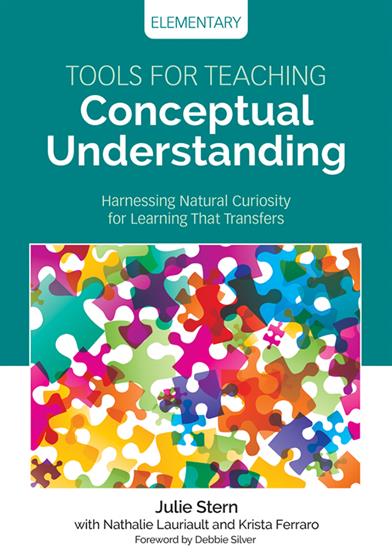Hands-on, Practical Guidance for Educators
From math,
literacy, science, equity, multilingual learners, and SEL, to assessment, school counseling,
and education leadership, our books are research-based and authored by experts
on topics most relevant to what educators are facing today.

Tools for Teaching Conceptual Understanding, Elementary
Foreword by Debbie Silver
- Grade Level: PreK-12
- ISBN: 9781506377247
- Published By: Corwin
- Series: Corwin Teaching Essentials
- Year: 2017
- Page Count: 208
- Publication date: September 21, 2017
Review Copies
Review copies may be requested by individuals planning to purchase 10 or more copies for a team or considering a book for adoption in a higher ed course. Request review copy
Other Titles in: Teaching Methods & Learning Styles | Brain-Friendly Teaching & Learning | Elementary Education




